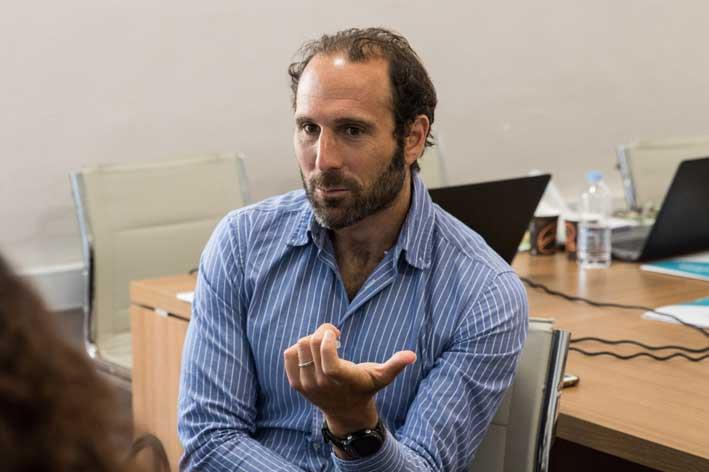Christmas arrives like a decorative package full of grief triggers: empty chairs, missing faces and silent voices can often haunt the holidays: what is supposed to be the happiest time of the year for a significant number of us can, in fact, be a time of sadness.
This year sees the first celebration of National Grief Awareness Week across Europe: a campaign that highlights awareness of all aspects of grief and loss and aims to start conversations, raise awareness and normalise the process of grief. The need for immediate access to support for all types of bereavement in local communities across the country is also emphasised, as well as how to help those grieving the loss of someone they loved.

But why now? The month of December is when the media and commercialism barrage us with the concept that ‘this is the happiest time of year’. But for a significant number of those around us, it is not. The ‘holiday blues’ – feelings of loneliness, loss or isolation that psychologists report can be heightened during the holiday period – can affect people with or without mental disorders. It can be brought on by grief or illness, spurred by the loss of a job or the end of a relationship and compounded by the stress and pressure of the holidays. The Maltese Association of Psychiatry (MAP) has not been silent in voicing its concerns over the social impact of moral grief due to Malta’s current political instability. Ultimately, grief comes in many forms.
“For most people, holidays are a great example of expectations exceeding reality,” said Dr Nigel Camilleri, a Consultant Clinical Psychiatrist. “I encourage people to be more sensitive to those around us and consider that in our families or social circles there may be one – or more than one – person who may be suffering from grief or loneliness during these times.
“Rather than focusing on giving material presents, each and every one of us can focus more on presence – listening to those who may want to talk and being present, and more supportive, to those around us. Furthermore, those who feel sensitive to social media may consider reducing their social media usage, especially if they are sensitive to this idea of mismatch between reality and fantasy.”
Dr Camilleri says idealised images sold to people regarding what the holidays look like and how they should feel are not always aligned with family dynamics, the circumstances of people’s lives or the other stressors they may be facing. Not everyone can afford to put presents under the tree and many families do not have all the people they love reunited around the fire.
He adds that when holiday disappointment strikes, people feel bad about themselves because they are not feeling happier, and their friends insisting that they should be acting ‘merry’ can lead to a sense of feeling invalidated. If you are wondering what this entails, here are some of the key indications that you, or someone close to you, may be experiencing this emotion.
• Feeling inadequate: this could look like someone blaming themselves for being alone over Christmas, or not having any plans for New Year’s Eve.
• Attacking others or the holidays themselves: someone might say that “Holidays are a waste of time” or “I can’t stand Christmas because of my rude uncle.”
• Withdrawing: this is when we hide our feelings, either from ourselves or from others, and it could look like declining all holiday invitations or rejecting calls and texts from friends and family.
• Avoiding: if you avoid your feelings, you may end up over-indulging in food or alcohol.
According to Dr Camilleri: “If someone close to you has recently died, or you can’t be with those you love, acknowledge that it is normal to feel low, angry or sad and that you are going through the grieving process.
“It’s okay to take time to cry or express your feelings. You can’t force yourself to be happy just because it’s the holiday season. We must recognise that Christmas can be a very emotionally challenging time after the loss of a loved one.
“Family members may all have different ways of grieving and so it’s essential to try and be sensitive to everyone’s needs and choices. It’s imperative to give children permission to look forward to – and enjoy – Christmas Day and, at the same time, to make space to remember that someone is missing and that it’s natural to miss them.
“And so, before the Christmas period, it is helpful to have a chat as a family about how everyone is feeling. It may be that part of those conversations can be about what you’d like to do – either together or individually – to remember the person in advance or on Christmas Day itself.
“Make plans but also allow yourself to change your mind: it’s okay to not go to that party. And, most importantly, be gentle and kind to yourself.”
What to do if you feel upset or need to talk to someone
Contact your family doctor, call Appogg on 179 or the Richmond Foundation on 1770, or chat online at kellimni.com